Silenced Voices
Morimura Yasumasa is a renowned artist known for his maverick self-portraits. When asked whether he could become Putin, he starts recounting his thoughts on the role of art in relation to war.
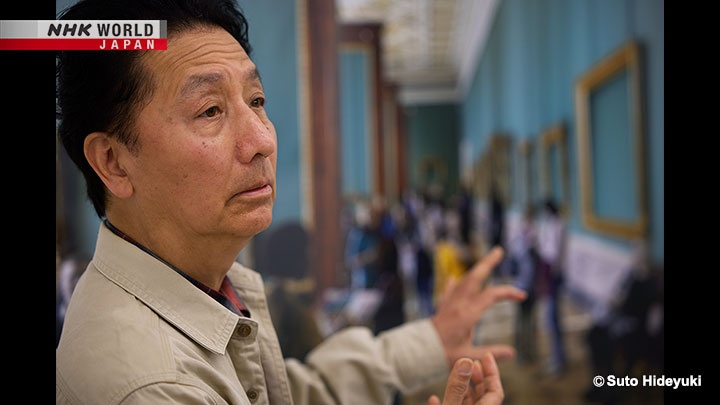
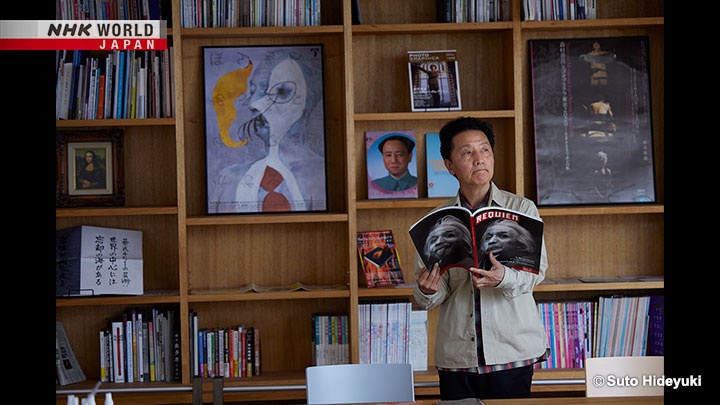
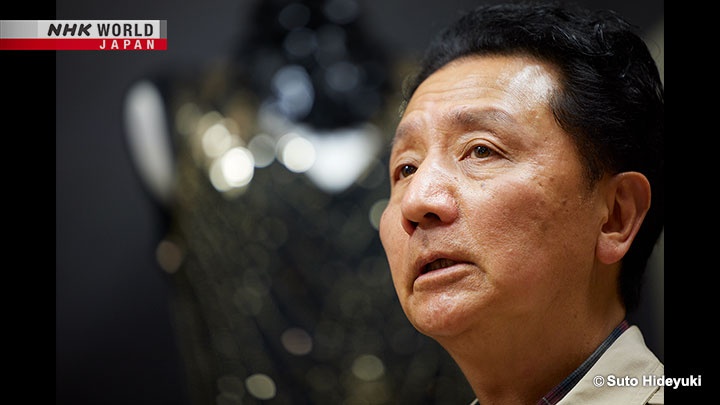
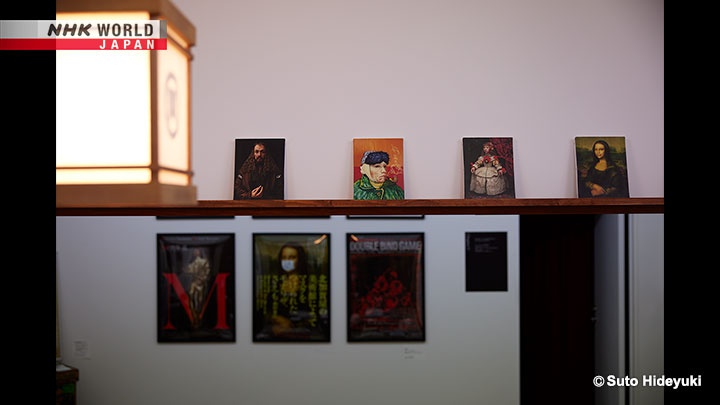
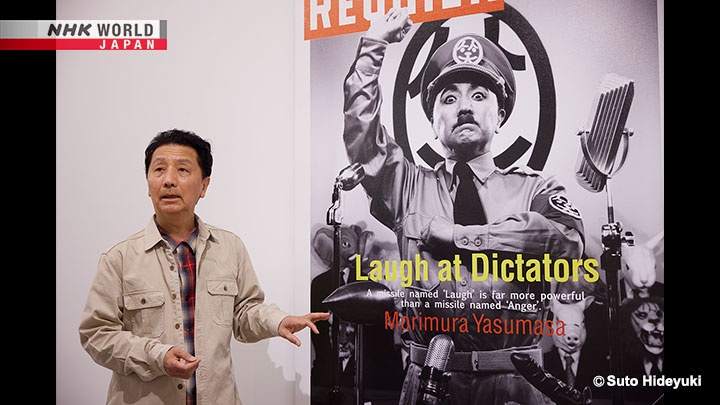

Transcript
I'm an extreme introvert.
I've always liked to play alone.
"Morimura Yasumasa
Artist
Born in 1951"
As a child,
I came up with the idea of
playing with invisible people.
That allowed me to be alone.
Self-portraits of others,
that's my artistic expression.
I become that person,
or play a role
in stories that I come up with
based on famous artworks.
I'm still playing by myself.
I've done so for
thirty-seven years now.
"Morimura turns himself into characters from
famous artworks, actors, politicians and
so on for his self-portraits."
"His 35-year oeuvre anticipates"
"today's fascination with cosplay, avatars
and multiple personas."
I barged into a filled lecture hall,
cosplaying as Marilyn Monroe,
thanks to a certain professor.
It was quite the intrusion.
Then I started posing,
to everyone's consternation,
as you can see.
"February 24, 2022
Russian invasion of Ukraine"
"What Japanese artists think"
I've been wondering
how to portray Russia
in my self-portraits...
"What about a self-portrait of Putin?"
Impossible.
I couldn't do
a self-portrait of Putin.
I did Adolf Hitler via
"The Great Dictator,"
the Charles Chaplin movie.
That kind of indirect approach
might be possible, though.
It's easy to denounce Putin.
It's also easy to advocate
for Ukraine.
The problem is -
your opinion could easily
be "Americanized."
If I criticize Putin,
some other camp might
take over my message.
Anything that doesn't sit well
with their beliefs gets rejected.
There's no real engagement.
I want to find my own
standpoint as an artist.
On June 21, 1941,
Hitler invaded
the former Soviet Union,
breaking the non-aggression treaty.
Two, three months later,
in September,
Nazi forces laid siege to Leningrad.
No one was able to escape.
Joseph Orbeli, director of
the Hermitage Museum,
learned about the situation
and immediately took action.
He evacuated more than
a million artworks
out of Leningrad by freight train.
"Nazi forces besieged Leningrad during WWⅡ."
"More than a million artworks were
evacuated from the Hermitage Museum."
"Morimura exhibits a series
made at the Hermitage Museum."
"He recreates a gallery with empty
picture frames."
In 2014,
I visited the Hermitage Museum,
where they allowed me to
create a series of works.
Here is their Rembrandt room
without any Rembrandts.
Only the frames are on display.
This is me, playing the role of
Vera Milutina, a painter
in Leningrad at the time.
The Hermitage was badly
damaged by the bombings,
and all the art was gone.
Vera wanted to record that scene.
Based on her painting,
I tried to recreate the gallery
with this photograph.
"In Morimura's gallery of empty frames,"
"the past and the present collide."
How do we read this picture
today, in 2022?
That depends on the viewer.
For instance,
a Russian loyalist might recall
the heroic resistance
against the Nazis.
But you could also say,
"This is what's happening in Ukraine."
I think that this work,
that art, in general, is a sort of platform.
It's a neutral platform that
doesn't have an opinion.
Anyone can say anything
at and about it.
That's what we need now.
It's crucial for artists to have
a space for exchanges of opinions,
for expression, in short.
If there isn't such a space,
I'd definitely make one.
I'm exhibiting this piece,
in the hope that art can be
a platform for expression.
Can you hear it?
It's a train.
We're under the railway.
My family traded in tea.
This was their storehouse.
No one was ever here,
so I came here to play as a child.
It felt like a secret hideout,
and now it's my atelier.
I do most of my work here.
Hair is very important when
recreating someone's look,
so now I have a ton of wigs.
All kinds of makeup tools too.
I do my own makeup
and take photos with
this camera equipment.
I wonder how Russian artists
are now.
I know they can't express
themselves freely.
All those silenced voices,
is there any way for us
to hear them?
It's... Hmm...
It's impossible for me, I guess.
Under Stalinism,
this period of extreme fascism
in the Soviet Union,
there was a poet called
Anna Akhmatova.
People around her were
arrested or killed.
She wanted to write that
in her poetry.
But they muzzled her, and
forced her to stop writing.
Maybe she can show us
how artists can survive
this kind of hardship.
Here -
I once wrote a children's book.
I mentioned her in that book.
"There was a poet named
Anna Akhmatova in Russia."
"At that time, you couldn't write books
that differed from government views."
"Disobedient ones were arrested or killed.
Anna couldn't remain silent."
"She wanted to dedicate a poem to the victims,
even if that was forbidden."
"So what did she do?"
"She memorized her poem."
"Yes, she memorized all of it."
Here in Japan, at this time,
we are in a position to say, well,
most things that we want to say.
That's why we must look at
the things we might forget,
that are being forgotten.
You might disagree,
but I think
things would be very dull
if seen as good or bad only
through the lens of humanism.
I believe that art casts light
on the things in oblivion.
Art sees the things
that no one notices and
makes us see their greatness.
That's how art expands.
It presents a new worldview,
and that's the most important thing.